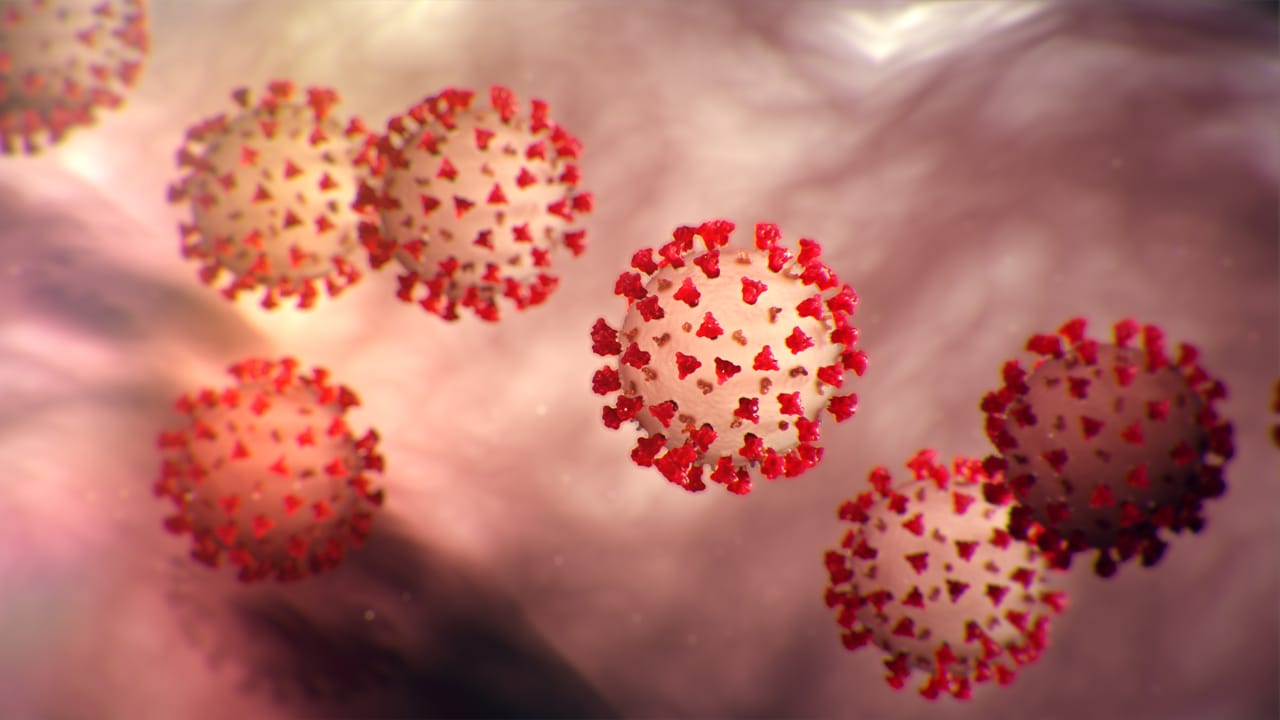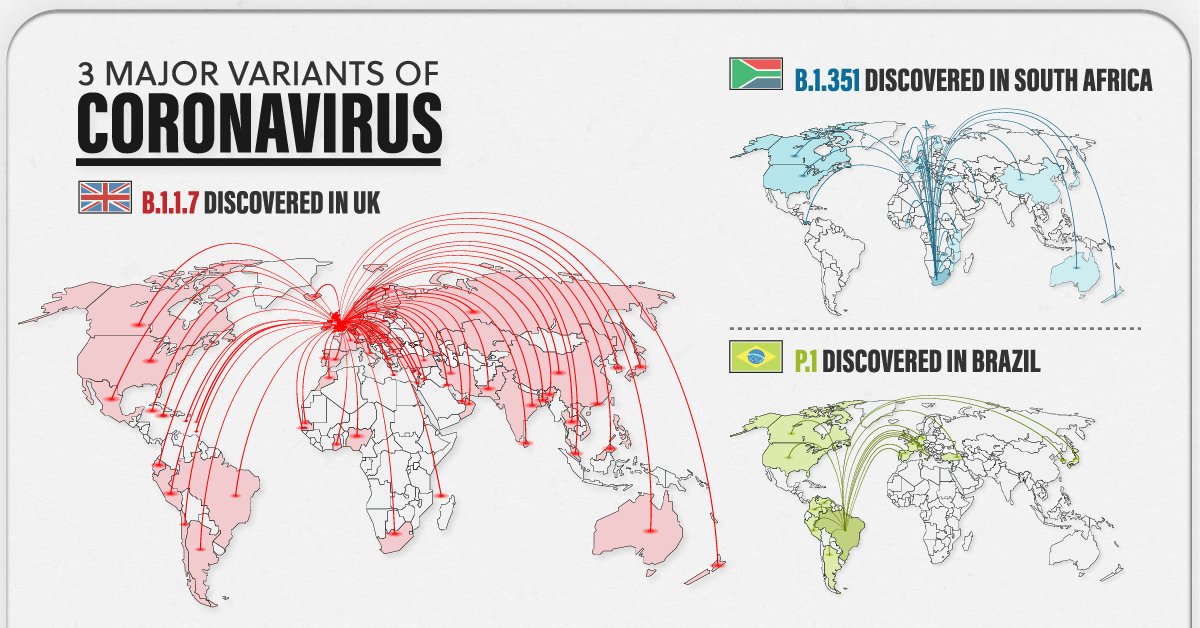
Covid-19 has taken over the entire world in the last year and continues to do so this year too. There are people all over the world, wishing to hold onto their loved ones and praying for things to get back to normal. Just as it seemed things couldn’t get any worse, new variants of the virus were found. It was reported that a new variant of the coronavirus that causes COVID-19 has been found, and since then, other variants have been identified. The new variants have raised so much fear and many questions such as: Are people more at risk for getting sick? Will the COVID-19 vaccines still work? Are there new or different things you should do now to keep your family safe?
Variants of a virus occur when there is a change or mutation to the virus’s genes. Based on research it said that Geographic separation tends to result in genetically distinct variants. Mutations in viruses including the coronavirus causing the COVID-19 pandemic are neither new nor unexpected. All RNA viruses mutate over time, some more than others. One mutated version of the virus was detected in southeastern England in September last year. That variant, now known as B.1.1.7, quickly became the most common version of the coronavirus in the UK, accounting for about 60% of new COVID-19 cases in December. It is now the predominant form of the coronavirus in some countries.
Different variants have emerged in Brazil, California and other areas. A variant called B.1.351, which first appeared in South Africa, may have the ability to re-infect people who have recovered from earlier versions of the coronavirus.
CDC established 3 classifications for the SARS-CoV-2 variants being monitored: Variant of Interest (VOI), Variant of Concern (VOC), and Variant of High Consequence (VOHC).
There are currently five VOCs:

B.1.1.7: This variant was first identified in the US in December 2020. It was initially detected in the UK.
B.1.351: This variant was first identified in the US at the end of January 2021. It was initially detected in South Africa in December 2020.
P.1: This variant was first detected in the US in January 2021. P.1 was initially identified in travelers from Brazil, who were tested during routine screening at an airport in Japan, in early January.
B.1.427 and B.1.429: These two variants were first identified in California in February 2021 and were classified as VOCs in March 2021.
B.1.351- South African Variant
The B.1.351 variant has not been shown to cause more severe illness than earlier versions. But there is a chance that it could give people who survived the original coronavirus another round of mild or moderate COVID-19. Researchers studying placebo (non-vaccine) recipients in the South African COVID-19 vaccine trial by Novavax compared subgroups of participants who did or did not have antibodies indicating prior COVID-19. Those who did have the antibodies most likely were infected with older variants of SARS-CoV-2. They found that having recovered from COVID-19 did not protect against being sickened again at a time when the B.1.351 variant was spreading there. Some of these mutations may enable the coronavirus to spread faster from person to person, and more infections can result in more people getting very sick or dying.
The South African variant carries a mutation, called N501Y, that appears to make it more contagious or easy to spread.
B.1.1.7- The UK Variant
B.1.1.7 was first identified in the United Kingdom in the fall of 2020. It then proceeded to be transmitted very rapidly, becoming the dominant strain in the U.K. This variant has been found in at least 80 other countries. This variant has several mutations that affect the spike protein. This protein is found on the surface of the virus. It’s what the virus uses to bind to and enter a host cell in your body.
This variant transfers more quickly between individuals. It is said that the B.1.1.7 variant is about 50 percent more infectious than the original coronavirus. A report from scientists in the U.K. also suggests that people who contract B.1.1.7 potentially have an increased risk for death. However, additional research is needed to investigate this finding.
P.1- The Brazilian Variant
P.1 was first detected in early January 2021 in travelers from Brazil who were tested upon entering Japan. It was first found in the United States in late January 2021. P.1 contains 17 unique mutations. These include some of the key spike protein mutations present in both the variants first identified in the U.K. and South Africa, as well as several other mutations. This variant may be more transmissible.
Double Mutant- Indian Variant
A new “double mutant” variant of the coronavirus has been detected from samples collected in India. Scientists are checking if the variant, where two mutations come together in the same virus, may be more infectious. Although little is known about the variant so far, scientists say that early data suggests that the double mutant is more contagious than the original version of the virus and has spread rapidly through parts of the country. In mid-February, India’s daily case count had dipped below 10,000 and deaths had fallen to double digits. Fast forward two months, and cases have soared past 200,000 for eight days straight, hitting a daily record for a single country of over 332,000 on Friday. Deaths rose 2,263, bringing the total to 186,920.
The Indian variant has 13 mutations but gets its name from two mutations similar to those seen separately in other variants. In other variants, one mutation is associated with making the virus more infectious and appears better at evading antibodies, while the other is similar to one that has shown signs of being able to sidestep some of the body’s immune responses.
Wrapping Up
Even though this year may seem like a repeat of 2020 (a little worse), let us be more hopeful, helpful and careful and we’ll get through this year too.
Read more on how Yoga can increase your immunity.


